On-page SEO may not be the most challenging part of online marketing or a website’s success, but that doesn’t mean it should be overlooked. It is a necessary step for anyone even remotely serious about their online presence. On-page SEO is complicated because every other aspect of your website has an effect on it. That requires an in-depth understanding of optimizing individual parts and elements of your site. Search engine optimization is what most people think about when they hear the words “on-page search engine optimization.” Although this is a general understanding, and maybe very similar, on-page search engine optimization, it is still widely misunderstood. On-Page SEO is a specific part of optimizing your page. This article will go in-depth to help you understand the different elements you need for success.
What is On-Page SEO
On-page SEO is optimizing your website’s content, and design to increase your search engine ranking. While Off-Page SEO refers to the link building you do to get links from other sites back to your own, On-Page is the work you do on your site to ensure that search engines know what your page is about.
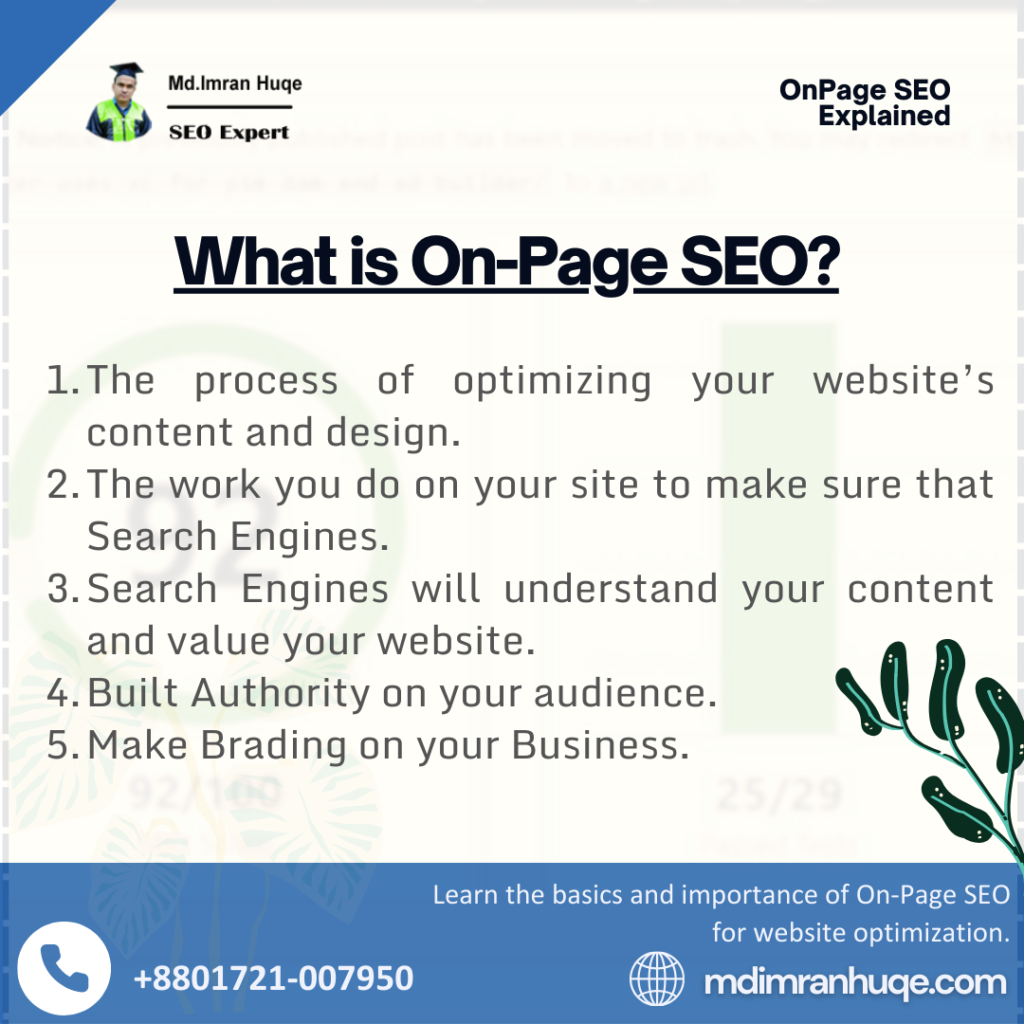
Why Is On-Page So Important?
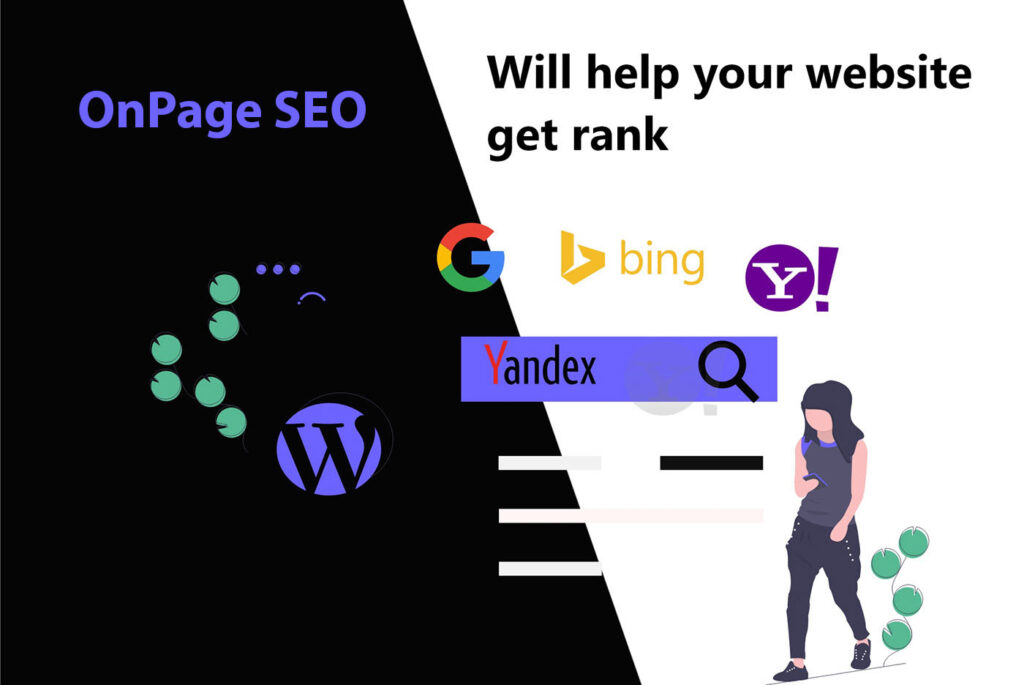
On-Page SEO is important for several reasons: You control it. You have complete control over what goes on your page so that you can optimize every detail yourself. If you want or hire someone else to do it for you, measuring results is easy. You can see right away if something you’ve done has affected your rankings by checking them frequently. It’s also easier to fix problems quickly and get back up in the rankings when they drop. This relieves the worry from being penalized for minor mistakes and allows more time for working on higher-level strategies like increasing other marketing efforts.
On-page SEO factors and elements
On-page SEO is all about making sure your website is built so that search engines will understand your content and value your website. Many different elements go into a proper on-page SEO strategy. Here’s a list of some of those factors and a brief description of why they are essential.
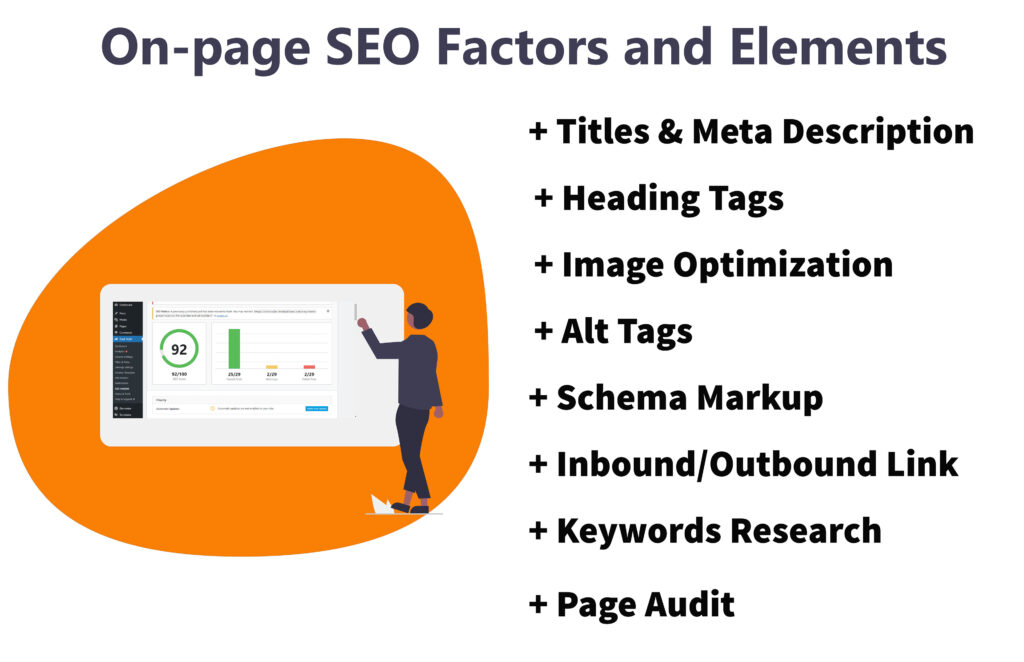
- Titles: The meta title is one of the most critical factors in on-page SEO. The meta title shows up in the search results next to your website name. This is often the first thing someone sees when clicking on your link in the search results. Suppose you do not have a descriptive or optimized meta title for your page. In that case, this could turn people away from clicking on your link, mainly because it does not show them what they would potentially be clicking into.
- Meta Descriptions: The meta description is maybe even more important than the meta title. The meta description is what shows up under your website name when someone searches for you in Google or Yahoo! If you have a good meta title and description, this can entice people to click through to your site by showing them what they will potentially be reading or the value they will receive.
- H1 Headers: An H1 header is a big deal because it’s the top heading on your webpage, so this is where you want to place your most important keywords. For example, if you’re selling winter coats, make sure your H1 header includes something like “Buy Winter Coats” or “Winter Coats.” If you sell shoes, you will use something like “Buy Shoes Online” or similar. Whatever keywords you put into your H1 header will appear in search results when people search for those terms. It also helps reinforce your title tag.
- Image Alt Attributes: Image alt text is the text that describes an image for screen readers for people who can’t see it. That sounds complicated, but it’s not. It’s just a brief description of the image and what it shows. Image alt text can help you achieve higher rankings in search results and image search results when appropriately used. It’s also beneficial from a user experience perspective since this text is what visitors see when they hover over an image on your site.
- Content: This element should be unique, relevant, and keyword-rich. This will help you rank higher on the search engine’s results page.
- Keywords: Keywords are an essential part of on-page SEO. There should be a balance between the number of words used and their density, measured by dividing the total number of words by the number of times a keyword appeared in the text.
- Internal linking: This can improve both on-page SEO and user experience. The links you use should encourage users to click through just as a regular affiliate link would. Links within your content also improve natural search engine ranking.
- Outbound link: Outbound links refer to the links on a webpage that direct the user to another website. Every website needs an outbound link with a high DA for the ranking factor. This improves the Search Engines’ rank and SERP Results of the website. If an outbound link is given from a website to a quality website, the first website is considered an authority website for the visitor. This increases Expertise, Experience, Authority, and Trust (E-E-A-T) on that website. An outbound link is known as Backlink.
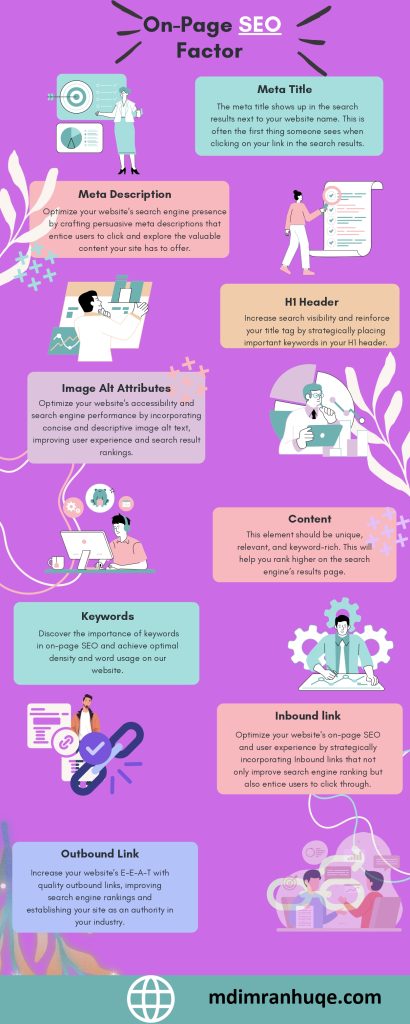
Why You need an On-Page SEO Service
One thing about SEO that most people don’t realize is that Google can often “see” what’s wrong with a website even if your site visitor can’t. The fact of the matter is there are hundreds if not thousands of things that marketers can do wrong on a website (or not do at all) from an SEO perspective. On-page SEO services have access to tools you don’t have access to or don’t have the time to pay for and train someone to learn. So, suppose you want your website not only to look good but also to get results. In that case, you’ll want to consider a professional on-page SEO service. You’ll get their expert advice on how to improve your pages’ appearance and to rank in the search engines while they work to optimize your web pages.
The bottom line is that on-page SEO takes time. The more you understand the basics, the better off you’ll be when hiring someone to handle it for you as your site grows. Many people don’t realize how complicated on-page SEO can get, and they ignore it until their site isn’t getting as much traffic or ranking. If you hire someone who says they can give results, don’t just take their word for it, use the information you’ve found in this article and make the best decisions for you and your company. By thinking strategically, getting help where you need it, and putting your plan together well, you can remove stress from your business and put it where it matters: serving your customers better!

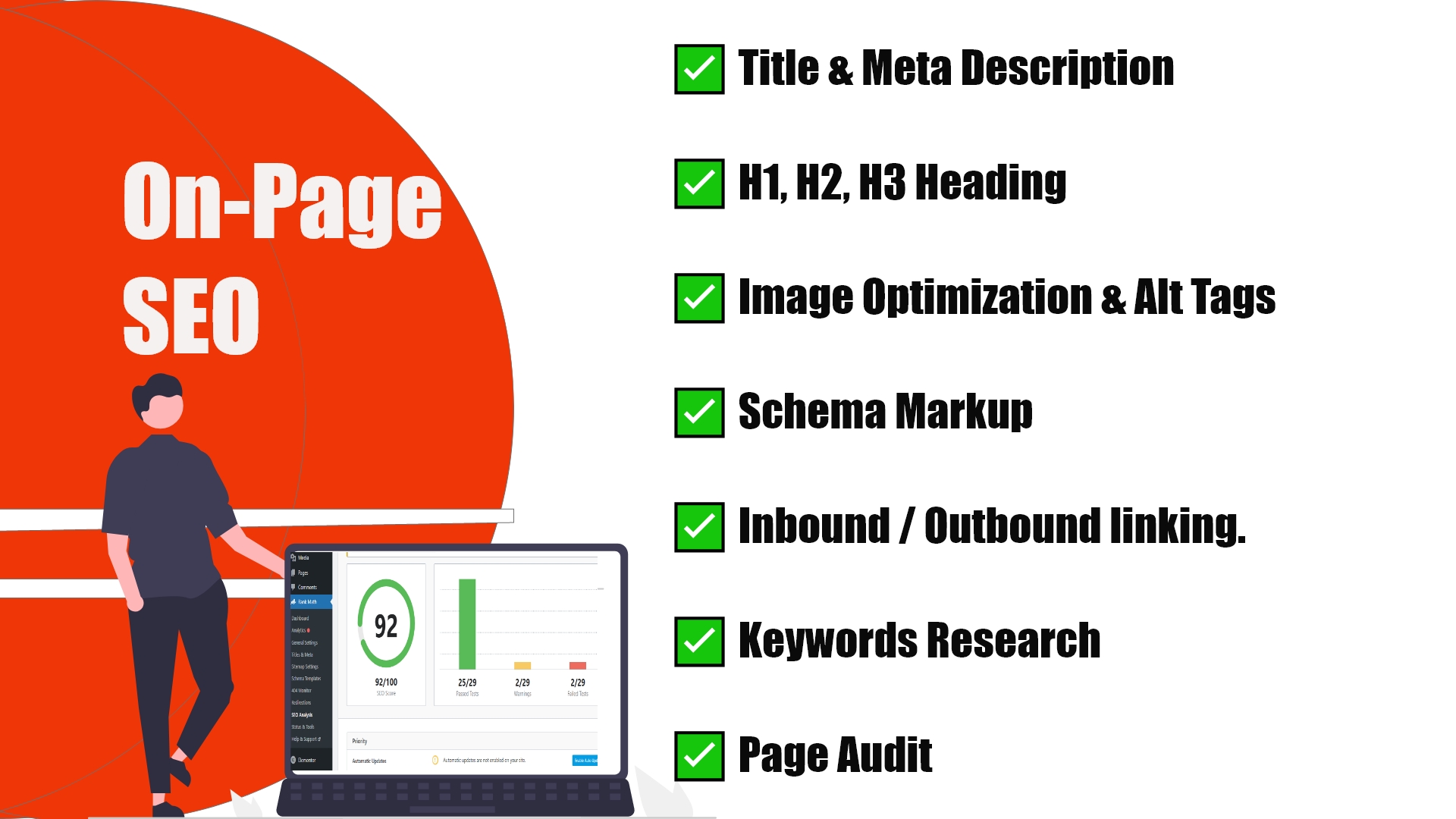
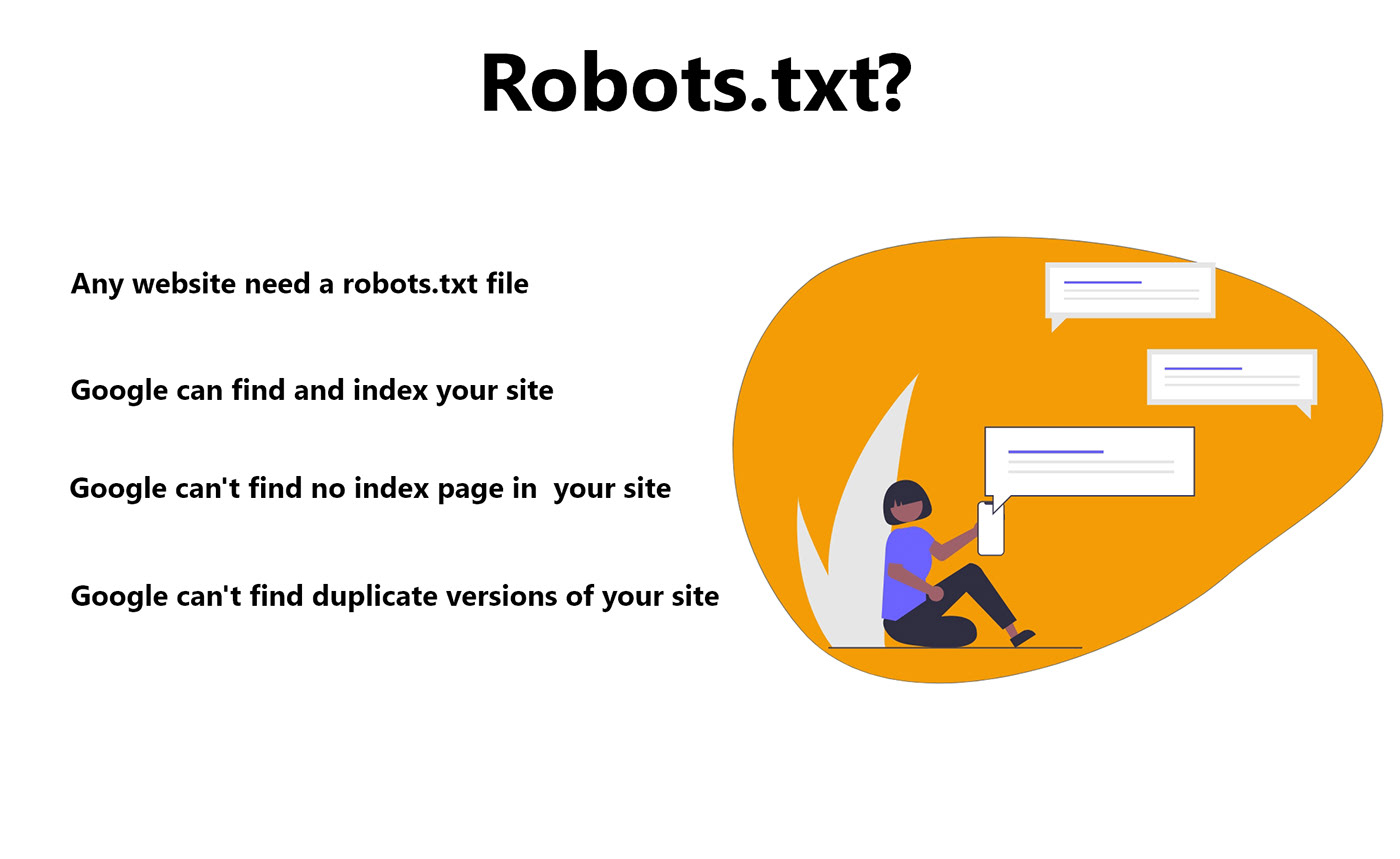
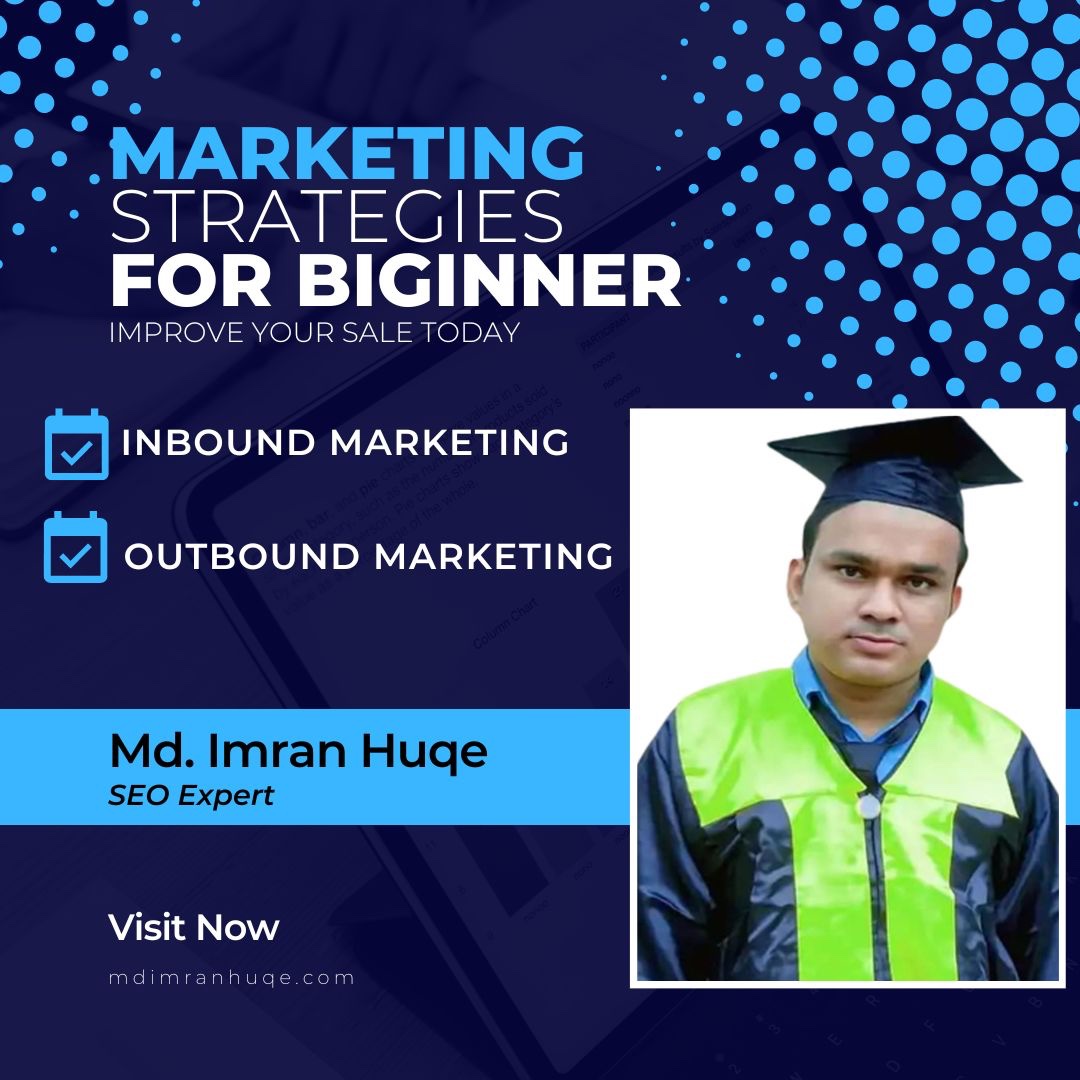

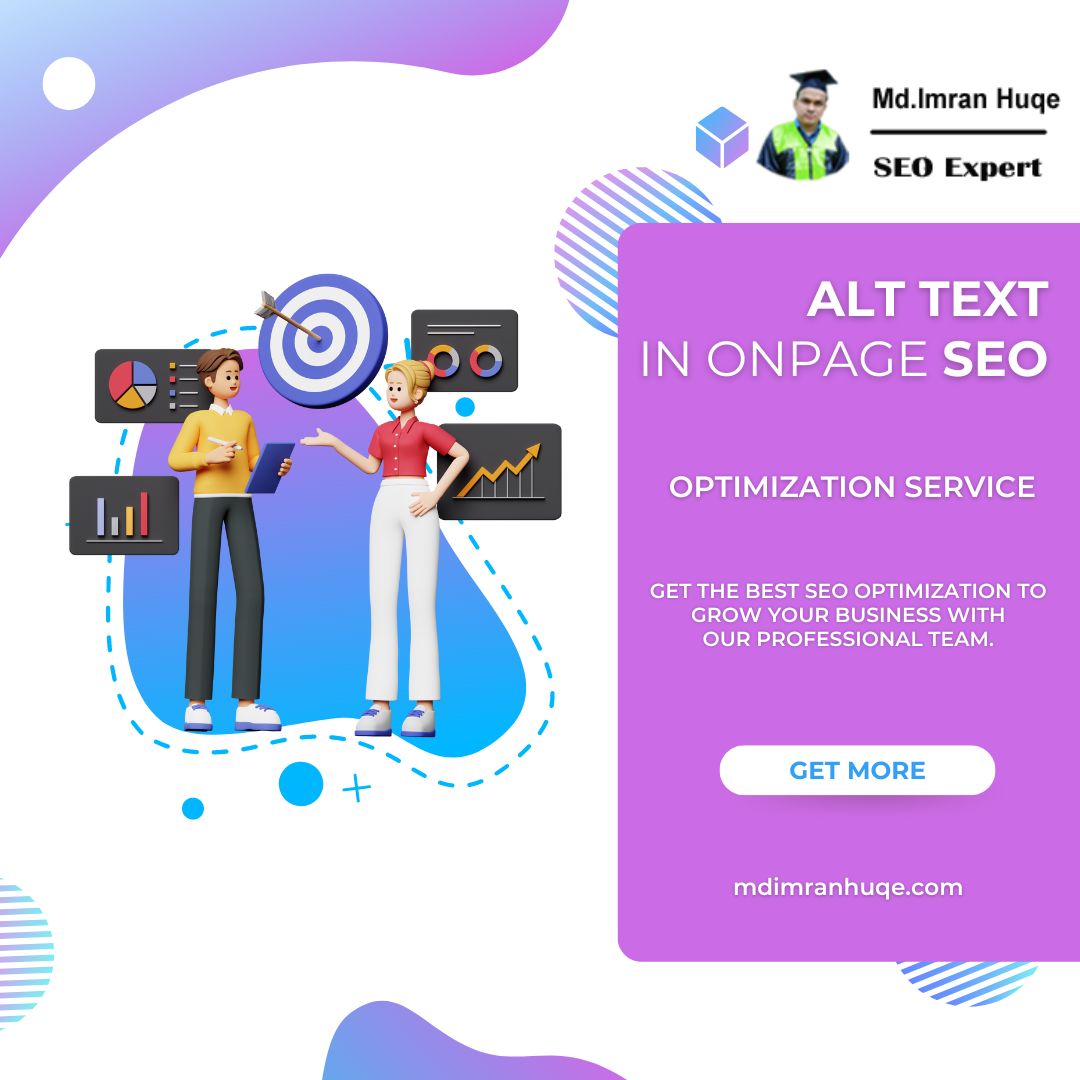
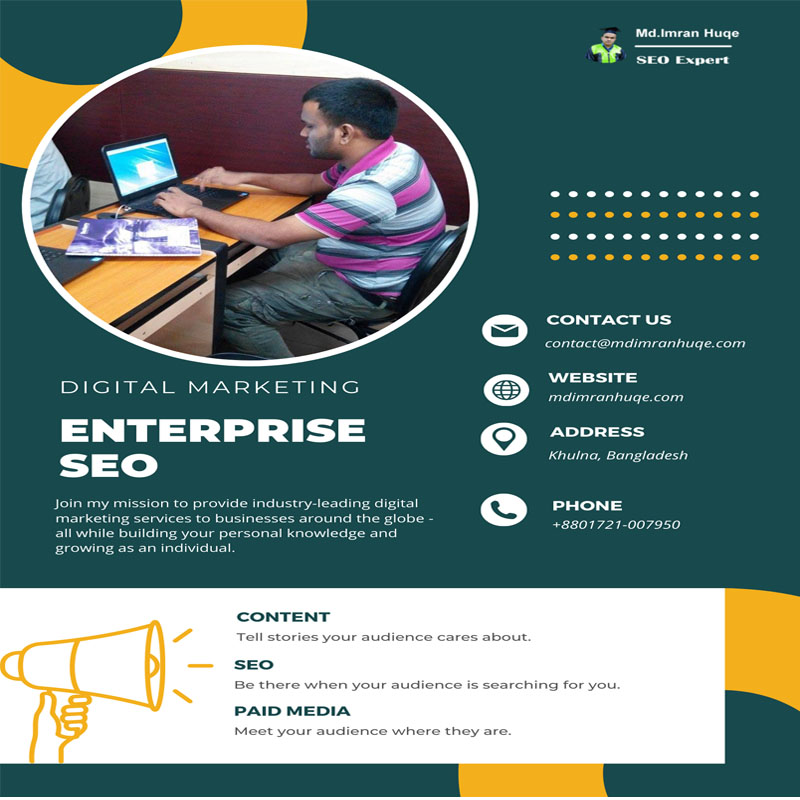
1 thought on “Why On-Page SEO is Crucial to Your Online Success?”
Pingback: How important is SEO? - Md. Imran Huqe